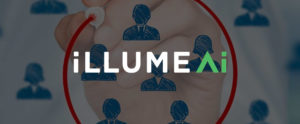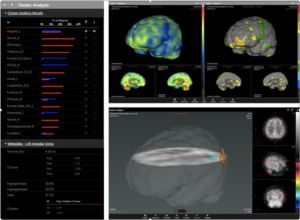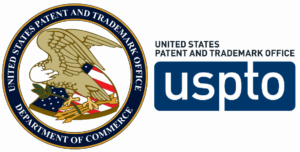It wasn’t too long ago that I was dashing to catch a flight when my phone started buzzing in my pocket. You know the feeling when you are so preoccupied with a task that letting a call go to voicemail seems like the better option, until the name shown piques your interest? In this case it was our Clinic Manager. “Would you have a moment to speak to a father about his CereScan experience,” she asked when the call connected? “I think that what he has to say will give you a glimpse into why what we are doing is so important.”
Anthony (an alias to protect the patient’s privacy rights) was a nineteen-year-old man who came to us with an extensive medical history and incoming diagnoses of Bipolar Spectrum Disorder and Schizophrenia, although a brain injury due to emotional trauma was also discussed. His father, the driving force seeking answers from CereScan, had seen his son regress from an accomplished high school student and athlete, well-rounded and seemingly happy, to a virtual recluse who had dropped out of school and was in a steady state of cognitive decline and prone to severe mood swings and atypical behaviors. In the three long years before our contact he had had multiple psychiatric evaluations and three types of neuroimaging in pursuit of a pathway forward. The medications he had been prescribed were a Molotov cocktail for Anthony and resulted in violent outbursts that left his family with the untenable choice of applying their judgement over his physicians’ and weaning him off all drugs. His outbursts decreased, but sadly his regression did not. This young man in the prime of his life had become a shell of his once active and vibrant self.
To say that the CereScan team was profoundly touched by the obvious care and concern of Anthony’s family would be an understatement. It is not unusual for us to work with caregivers who are advocating on behalf of a loved one dealing with a complex neurological disorder. Perhaps it was Anthony’s youth and the severity of his incoming diagnoses that made this case different. Regardless, our collective radar was at full tilt when an abnormality was discovered in the qSPECT imaging we performed, which was consistent with abnormalities shown in prior PET/CT scans. When quantified and correlated, the nature, location, and pattern was indicative of a toxic/hypoxic/neuroinflammatory encephalopathic process, most commonly the result of prolonged exposure to carbon monoxide.
Our team is particularly well equipped to deal with the intensity of a post imaging review. We do these in person with our clinician explaining the CereMetrix® report while the patient’s images are projected on a screen. If a picture is worth a thousand words, in this case it must have been worth a million watts of light when the abnormal regions were identified then linked to potential causes. Interrupting the review to contact a tradesman in carbon monoxide testing, Anthony’s father wasted no time in confirming that his son, whose bedroom abutted the room with their furnace, was slowly being poisoned by a carbon monoxide leak in their home. Consumed by the rapid decline in Anthony’s health, his wife and he had ignored their own symptoms of a less severe decline in their own cognition.
In my ten years at the helm of the CereHealth brands I have allowed thousands of compelling cases to touch my heart and strengthen my resolve to drive the coalescence of technology into medical practice. Few are more powerful than the story of Anthony and his family and the “what ifs” that naturally evolve from its telling.
- What if the vast stores of data contained in Electronic Health Records were effectively digitized AND quantified for use by the worldwide medical & scientific communities, and
- What if medical professionals and scientists reversed course and embraced use of Artificial Intelligence and Machine Learning as a COMPLEMENTARY tool to enhance diagnostic accuracy and outcome measurement, and
- What if discoveries by a new breed of physician data scientists who understand machine learning are applied to medical research and clinical practice, and
- What if a partnership between technology and medicine results in sophisticated predictive tools that will provide new insights into the most lethal disease states and medical challenges, and
- What if the goal of improved patient outcomes and drastically reduced medical costs really is achievable in our lifetime through integrated technologies?
The net/net from my perspective is that this young man’s prognosis, absent any use of advanced neurodiagnostics through applied data, would have been steady regression of his mental health manifesting itself in a variety of severe physical and psychological challenges over time. In most cases the cost, both social and financial, would not merely be borne by a family, but by a community at large. Can there be any question, then, of whether AI has a place in medicine?
I suppose you could ask Anthony’s father. In the short time that I spent with him on the phone that day it was more than apparent that he credited CereScan’s team of compassionate medical professionals who were using revolutionary technology with saving his family’s lives.
As we begin this holiday season, this very special time of hope and optimism, I ask you first to make an annual check of your furnace with carbon monoxide monitoring a part of your pre-holiday routine. And when you are gathered around the Thanksgiving table, eyeing our almost (yet favored) national bird for consumption, give thanks that sometime soon you just may see a machine give new life to yourself or someone that you love.
Happy Thanksgiving!
John Kelley is the Chairman and CEO of CereHealth Corp., a brain imaging and data analytics company with a proprietary, scalable AI platform. The Company is focused on becoming the world leader in the development of quantitative biomarkers for central nervous system (CNS) disorders to reduce misdiagnosis rates, increase treatment efficacies and help bring new therapies to the market faster.




